Ethics Hub
Scenario: Your instructing solicitor makes an error
You are instructed by Keating & Davis, a firm of solicitors, on a matter for a large manufacturing company, Bricks & Mortar Ltd. During the course of the matter, you become aware that Keating & Davis has made an error, causing substantial financial damage to Bricks & Mortar Ltd. It is unclear from the file whether or not Bricks & Mortar Ltd has been informed of the error and the resultant unsatisfactory outcome.
What, if any, are your obligations in this situation?
- Principle 3.1 of the Code of Conduct makes clear that you must act in the best interests of your client regardless of the consequences for your professional client or other intermediary. You must not permit a professional client, employer or any other person to limit your ability to fulfil this duty. You should therefore query anything that does not look satisfactory with the instructing solicitor at Keating & Davis.
- The Code of Conduct also includes the obligation to act with integrity and professionalism, and to not act in any way which is likely to diminish the trust the public places in you or in the profession of Costs Lawyers. We would therefore expect you to act if you are aware of any negative impact on Bricks & Mortar that Keating & Davis refuses to rectify, including by informing the client and/or alerting the Solicitors Regulation Authority if necessary.
- Principle 1.1 – You must act honestly and with integrity, not only in your professional life but also in your private life where your behaviour might reasonably be considered to undermine your adherence to the core ethical principles of the profession.
- Principle 1.7 – You must not act in any way which is likely to diminish the trust the public places in you or in the profession of Costs Lawyers.
- Principle 3.1 – You must act at all times in the best interests of your client, except where this conflicts with your duty to act independently in the interests of the proper administration of justice or where otherwise permitted by law. You must act in the best interests of your client regardless of the consequences for your professional client or other intermediary. You must not permit a professional client, employer or any other person to limit your ability to fulfil this duty.
- Principle 3.1a – You must decline to accept an instruction from a client or, if you have already accepted an instruction, you must cease to act if:
- it would not be in the client’s best interests for you to act;
- your own interests conflict with your duty to act in the best interests of the client in relation to the instruction, or there is a significant risk of such a conflict arising during the course of the instruction; or
- the client’s interests conflict with those of another client. You may, however, act if each client has substantially common interests and has given informed consent.
